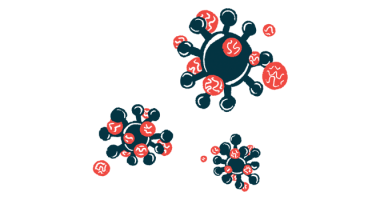Trial of COVID-19 Booster Vaccine Opens in Autoimmune Diseases

An enrolling clinical trial is assessing whether a “booster shot” of a COVID-19 vaccine can improve the immune response in people with scleroderma and other autoimmune diseases who did not respond, at all or optimally, to their original COVID-19 vaccine regimen.
The study also will test whether temporarily stopping medications that suppress the immune system improves the body’s response to an extra dose of COVID-19 vaccine among these individuals.
Autoimmune diseases are marked by the immune system erroneously launching an inflammatory attack on healthy tissue. About 8% of Americans are thought to be living with autoimmune diseases, including a disproportionate amount of people in minority communities that have been hit hardest in the ongoing pandemic.
Treatment of scleroderma and other autoimmune diseases often involves immunosuppressants, medications that lower the activity of the immune system. Since vaccines work by “teaching” the immune system how to fight an infectious invader — like the SARS-CoV-2 virus that causes COVID-19 — an immune system weakened by immunosuppressants may be less able to effectively respond to a vaccine.
Recent data suggest that an extra dose of COVID-19 vaccine can enhance the immune response in organ transplant recipients, who are given immunosuppressants to lessen the chance of transplant rejection.
The U.S. Food and Drug Administration recently amended the emergency authorizations of both the Moderna and the Pfizer-BioNTech COVID-19 vaccines to allow an extra dose to be given to organ transplant patients and others with severely weakened immune systems.
“Many people who have an autoimmune disease that requires immunosuppressive therapy have had a poor immune response to the authorized and approved COVID-19 vaccines, placing these individuals at high risk for the disease,” Anthony Fauci, MD, said in a press release. Fauci is director of the National Institute of Allergy and Infectious Diseases (NIAID), part of the National Institutes of Heatlh (NIH), which is funding the clinical trial.
The trial (NCT05000216), called COVID‐19 Booster Vaccine in Autoimmune Disease Non‐Responders, aims to enroll about 600 adults with autoimmune diseases at 15–20 clinical sites in the U.S. Study contacts and site information is available; some sites have begun recruiting participants.
In addition to scleroderma, the trial will enroll people with multiple sclerosis, pemphigus, rheumatoid arthritis, or systemic lupus erythematosus.
In order to be eligible, participants must have had a sub-optimal immune response to one of the COVID-19 vaccines currently approved or authorized in the U.S. That means either two doses of the Moderna vaccine, two doses of the Pfizer-BioNTech vaccine, or one dose of the Johnson & Johnson vaccine.
They also must be taking one of three immunosuppressant regimes: mycophenolate mofetil (MMF) or mycophenolic acid (MPA); methotrexate (MTX); or B-cell-depleting medicines.
All enrolled will be given an extra dose of the same COVID-19 vaccine that they had originally received. Participants on MMF/MPA or MTX will be randomly assigned to either continue with treatment as normal, or to briefly discontinue treatment prior to and following the extra dose. All those on B-cell-depleting therapies will continue taking those therapies consistently.
The study’s main goal is to determine the proportion of patients with a significantly better immune response four weeks after receiving the booster shot than was seen following the original vaccinations. Immune response will be evaluated by testing for antibodies against the SARS-CoV-2 virus.
Study participants will be followed for a total of 13 months, with regular evaluations. Preliminary results are expected in November.
“We are determined to find ways to elicit a protective immune response to the vaccines in this population,” Faucci said. “This new study is an important step in that direction.”







